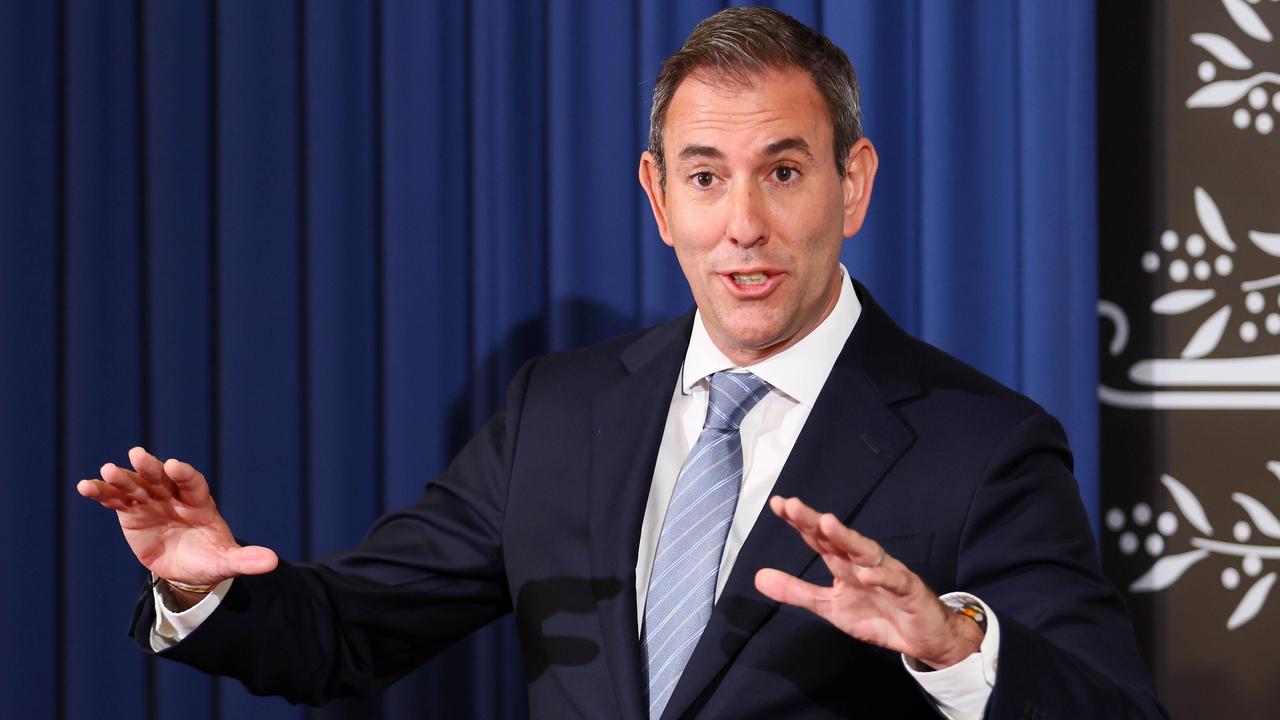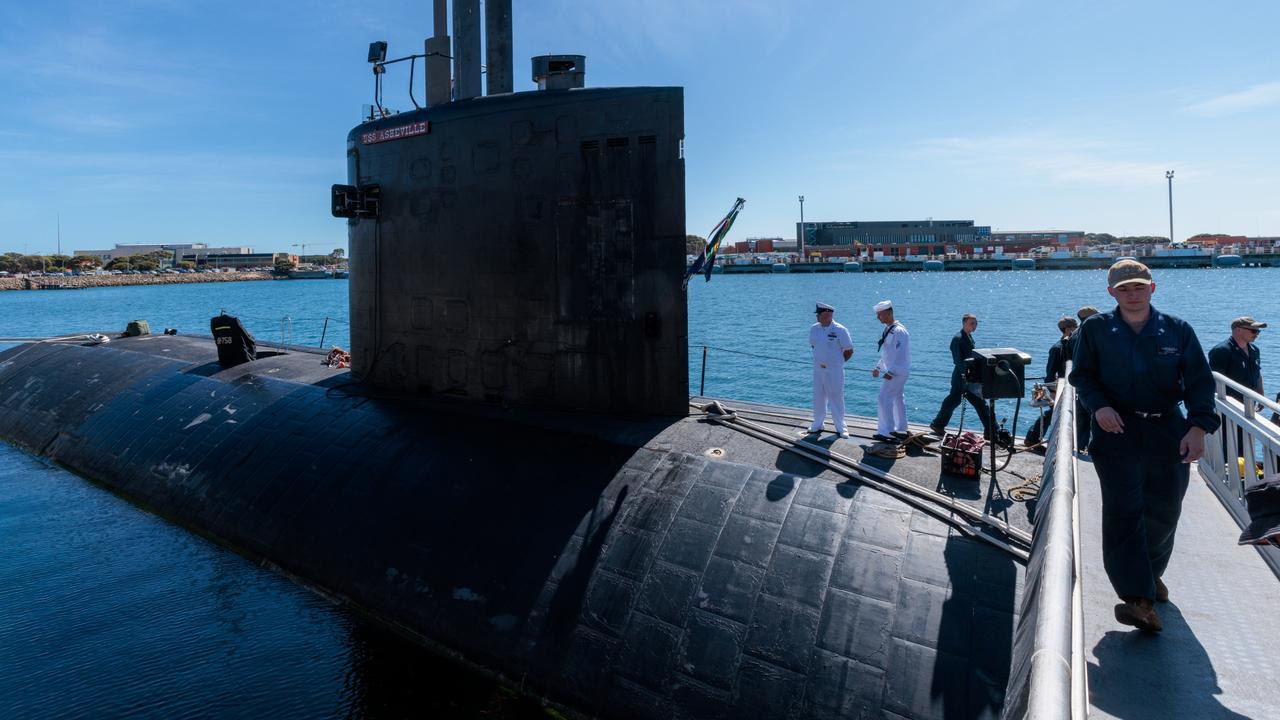Federal Budget 2019: Your 5 minute guide
Workers, small business owners and Australia’s bottom line are among the big winners in today’s Federal Budget. Here’s a quick rundown of what you need to know.

Federal Budget
Don't miss out on the headlines from Federal Budget. Followed categories will be added to My News.
What you need to know about Josh Frydenberg’s first Budget:
MORE BUDGET 2019 NEWS:
Mental health gets crucial boost in Budget
‘Secret’ funding to stop cyber spies
Christmas Island detention centre to close again
Winners and losers of the 2019 Federal Budget
THE ECONOMY
— For the first time in 12 years, Australia has a surplus. The surplus will be $7.1 billion in 2019-2020, which will grow to $17.8 billion by 2021-22.
— Net debt will be completely eliminated by 2030. It will fall from a peak of $373.5 billion in 2018-19.
— Cost of living will increase by 1 per cent to 2.5 per cent by 2020-21.
— Wage growth will be sluggish, with the Wage Price Index only increasing from 2.5 per cent this year to 3.5 per cent in 2021-22.
— The jobless rate is forecast to remain steady at 5 per cent until 2021-22.
TAX
— Tax cuts already legislated last year for middle-income earners will double, meaning 10 million workers earning up to $126,000 a year will get hip pocket relief within 13 weeks.
— Single income families will get up to $1080 in their pocket annually while dual income families can expect up to $2160.
— 4.5 million taxpayers will receive the full amount.
— The tax bracket set to capture all taxpayers earning between $45,000 and $200,000 by 2024 will be dropped from 32.5 per cent tax rate to 30 per cent that year.
— 94 per cent of workers will only pay 30c tax for every dollar they earn.
WELFARE
— $528 million for a Royal Commission into abuse, neglect and exploitation in the disability sector.
— Cashless debit card trial will be extended for another year until June 2021.
— Pensioners will get a one-off payment to help with their energy bills. Singles will get $75 and couples will get $125.
SMALL BUSINESS
— Small businesses will only have to pay 25 per cent in tax
— The instant asset write-of will be increased from $25,000 to $30,000 and expanded to include businesses with a turnover of up to $50 million. The change will mean 22,000 more businesses, employing 1.7 million Australians can take advantage of this offer.
— $9.2 million over four years to establish a dedicated unit to crackdown on scam contracting
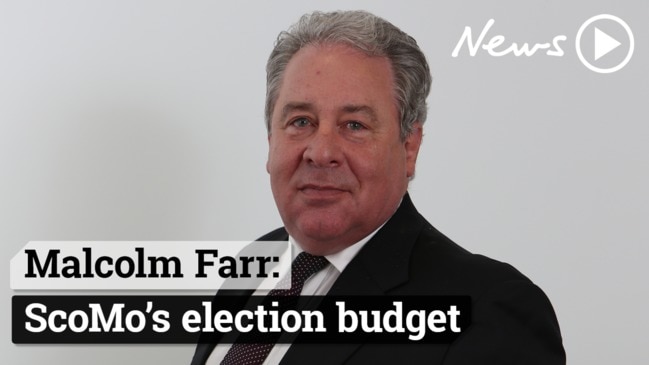
INFRASTRUCTURE
— Commuters will benefit from a $3 billion increase to the Urban Congestion Fund, which will fund projects to cut travel times in cities and increase parking at train stations.
— A 10-year infrastructure package will be drastically increased from $75 billion to $100 billion.
— $2 billion will go to a fast rail from Melbourne to Geelong.
— $2.2 billion for road safety, which will help councils tackle black spots and pot holes
— $100 million for regional airports.
— $165 million for the Adelaide City Deal
— Congestion-busting projects for every state and territory, including $3.5 billion for Western Sydney North South Rail Link and $1.6 billion for the M1 Pacific motorway extension to Raymond Terrace in NSW and $2.6 billion for Queensland key road and transport projects.
MORE BUDGET 2019 NEWS:
Medicare shake up among health sweeteners
Aged care pain despite funding boost
‘Funding flop’: $453m for preschools
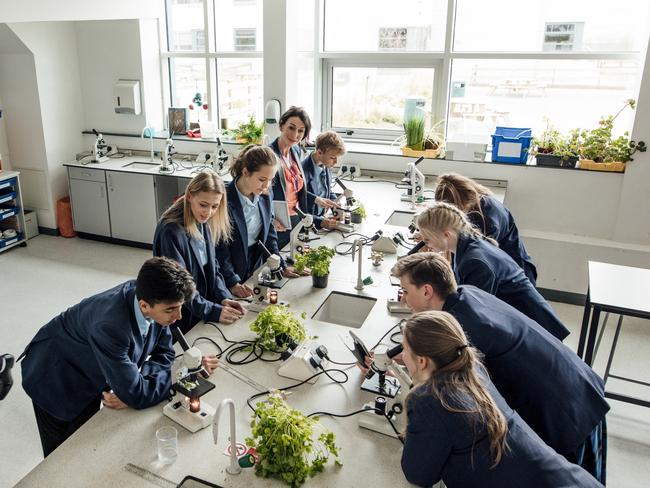
TRAINING
— 80,000 new apprenticeships for industries which suffer from skills shortages.
— Employers’ incentives to hire apprentices will be doubled to $8000, while new apprentices will receive $2000.
— Ten new training hubs in regional areas will be established to connect schools, local industries and young people to assist areas with high youth unemployment.
— $62 million will also be allocated to boost literacy, numeracy and digital skills.
RESEARCH
— $9 billion will be invested in science, research and technology.
— $20 billion will go towards a Medical Research Future Fund for clinical trials and research into areas such as tuberculosis and traumatic brain injury.
— $400 million will go towards genomics research to “unlock the secrets of our DNA.”
— $56 million for research into Type 1 diabetes
MORE BUDGET 2019 NEWS:
Barefoot Investor’s Budget verdict
Treasurer’s Budget speech in full
Kochie’s verdict on ‘resurrection’ budget

EDUCATION
— A local school community program will fund upgrades to libraries, classrooms and playground equipment.
— The government announced a new scholarship for more than 1000 students per year to study regionally.
— $453 million will be spent to extend preschool education for young children to allow 350,000 children to receive 15 hours of quality early learning per week.
HEALTH
— $1.3 billion over seven years from 2018-19 to upgrade the country’s health and hospital system. Funding will focus on infrastructure, drug and alcohol treatment, chronic disease management and mental health.
— More medicines will be added to the Pharmacutical Benefits Scheme (PBS) including kidney, bladder, liver and skin cancertreatments. Leukaemia sufferers will receive some relief with medicines Besponsa and Venetoclax being added to the list.
— Heart health checks and diagnostic imaging for breast cancer added to Medicare Benefits Scheme.
— $229.9 million over seven years to improve community mental health services
— GPs will be paid when they contact patients over the phone and provide other non face-to-face care under a $1 billion program. The scheme will be offered to people aged over 70 who agree to enrol with a single GP practice that will manage all their health care.
NATIONAL SECURITY
— Christmas Island detention centre will be closed again by July if the Morrison government can repeal refugee medevac laws before the election.
— Spy agency ASIO and the Australian Federal Police will get a $571 million funding injection. Staff will also increase forboth agencies, ASIO 107 and the AFP to get 312.
— Funding for Operation Okra — Australia’s deployment in Iraq primarily to tackle Islamic State — will be cut back from $241.2 million in 2019-20 to just $3.9 million in 2020-21 and $19.6 million in 2021-22.
AGED CARE
— $724.8 million to support older Australians by improving quality, safety and accessibility of residential and home care.
— $5.9 billion to extend home support services including Meals on Wheels, personal care, nursing, domestic assistance, home maintenance and community transport.
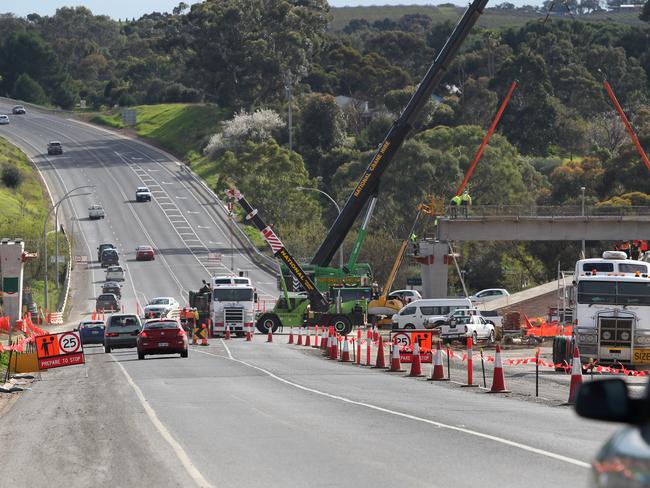
TECHNOLOGY
— Cyber Security “sprint teams” designed to chase foreign spies out of Australian government networks will be created aheadof the federal election in an attempt to protect the country’s most sensitive information and to stop interference.
— Individual online privacy and increased scrutiny on social media giants also received greater funding, with a $25 millionboost for the Australian Information Officer to investigate privacy breaches and social networks including Facebook and Twitter.
— An additional $25.1 million will go to the Office of the Australian Information Commissioner over three years to respondto privacy complaints, and “support strengthened enforcement action” against social networks such as Facebook, Twitter andSnapchat if they “breach privacy regulations”.
ENVIRONMENT
— $3.5 billion over 15 years for a Climate Solutions Package to deliver on Australia’s 2030 climate commitments including a national electric vehicle strategy to mitigate transitions to new car technologies.
— $25 million to Monash University and University of Melbourne to establish coasts, environment and climate research and education centre at Point Nepean, Victoria.
— $137.4 million for on-ground protection and restoration of the environment.
— $28 million for Bureau of Meteorology radars and rain gauges to address gaps in weather monitoring infrastructure in Queensland.

ENERGY
— $61.2 million over four years from 2019-20 to establish Energy Efficiency Communities Program.
— $18 million to help households and businesses improve their energy bills.
— $75.5 million to support investment in network infrastructure and reliable energy supplies.
TOURISM
— $216.2 million until 2028-29 to secure tourism and jobs in Kakadu National Park and support the future of the Jabiru township.
CHILD PROTECTION
— $7.8 million to the Australian Criminal Intelligence Commission to establish a National Public Register of Child Sex Offenders.
ECONOMIC DATA
Net debt will be completely eliminated by 2029-30. It will fall from a peak of $373.5 billion in 2018-19 to $326.1 billionin 2022-23 and then be eliminated by 2030.
Surplus: $7.1 billion in 2019-20 (from July this year)
Surplus forecast:
2019-20: $7.1 billion
2020-21: $11 billion
2021-22: $17.8 billion
2022-23: $9.2 billion
CPI (Cost of living)
2018-19: 1.5%
2019-20: 2.25%
2020-21: 2.5%
Wages:
2018-19: 2.5%
2019-20: 2.75%
2020-21: 3.25%
2021-22: 3.5%
Jobless rate:
2018-19: 5%
2019-20: 5%
2020-21: 5%
2021-22: 5%
Government spending (as share of GDP)
2018-19: 24.9%
2019-20: 24.6%
2020-21: 24.6%
2021-22: 24.5%

